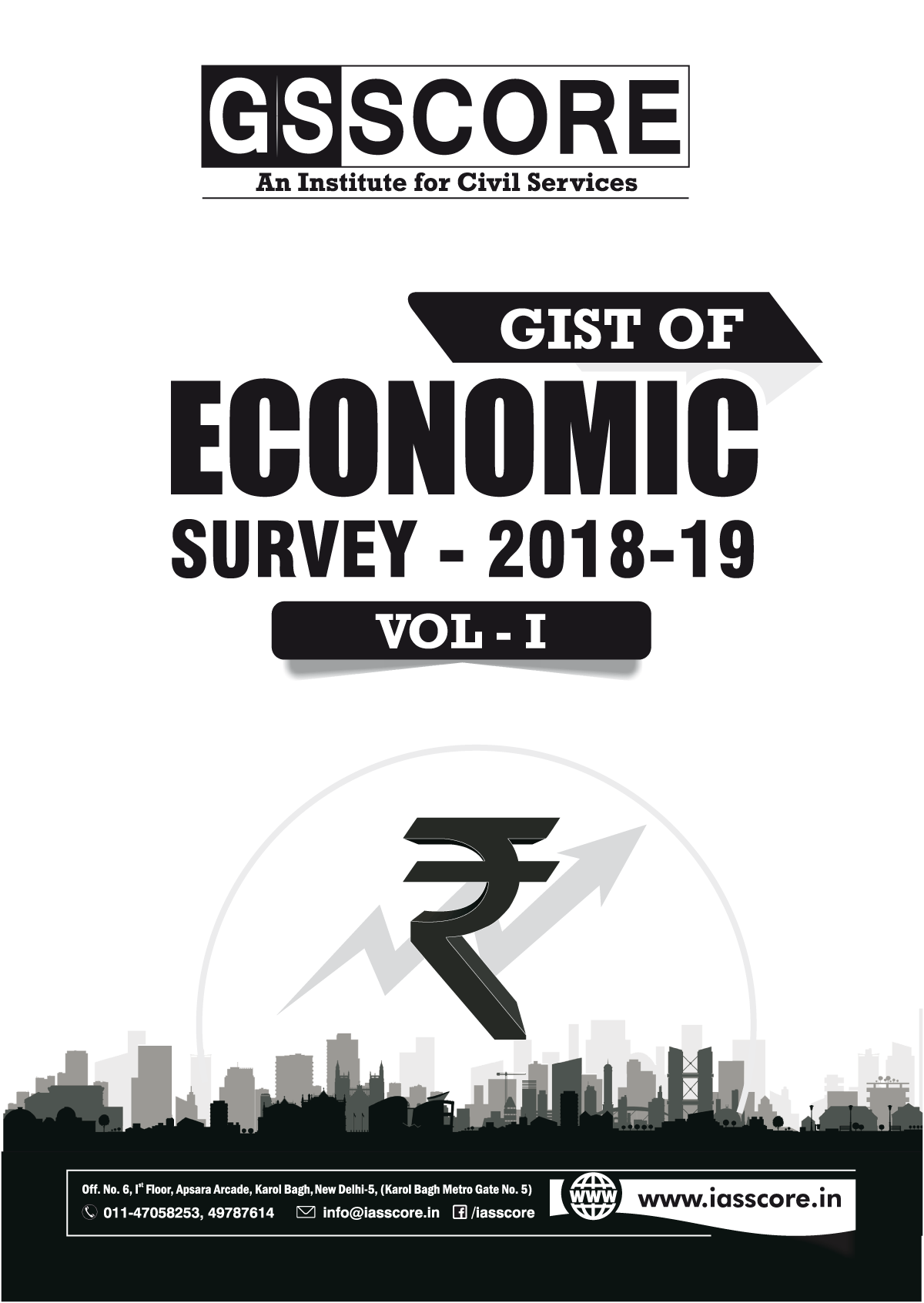


The Economic Survey is formulated by the Economic Division of the Department of Economic Affairs in the Finance Ministry under the overall counseling of the Chief Economic Adviser. The first Economic Survey of India was bestowed in 1950-51. We at GS Score endeavored to provide a synopsis of Economic Survey 2018-19. We aspire that it will assist as reappraisal instrument for both prelims and mains.
Why to read economic survey?
- It gives the attribute of various sectors of the economy and overall economic scenario of the country in the past years. Not only this, it also provides a framework for the year ahead.
- It is highly efficacious for IAS aspirants. Every year 8-10 questions directly come from economic survey in UPSC Prelims exam.
- For the Mains GS-3, current part of the syllabus related to economic and to some extent social developments can be formulated from the survey.
- It accommodates very important and relevant data which can be directly quoted in the GS papers, essay and even in some humanities optional.
- It helps in understanding the macro parameters of the economies and get a government point of view upon conflicting issues.
Economic Survey 2018-2019: Highlights
- Shifting Gears: Private Investment as the Key Driver of Growth, Jobs, Exports and Demand,
- Policy for Homo Sapiens, Not Homo Economicus: Leveraging the Behavioural Economics of "Nudge",
- Nourishing Dwarfs to Become Giants: Reorienting Policies for MSME Growth,
- Data "Of the People, By the People, For the People",
- Ending Matsyanyaya: How to Ramp Up Capacity In The Lower Judiciary,
- How does Policy Uncertainty affect Investment?,
- India's Demography at 2040: Planning Public Good Provision for the 21st Century,
- From Swachh Bharat to Sunder Bharat via Swasth Bharat: An Analysis of the Swachh Bharat Mission,
- Enabling Inclusive Growth through Affordable, Reliable and Sustainable Energy,
- Effective Use of Technology for Welfare Schemes- Case of MGNREGS,
- Redesigning a Minimum Wage System in India for Inclusive Growth.
Related Articles

